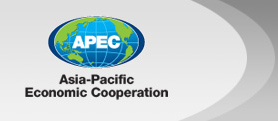APEC economy: Canada; Jurisdiction: Québec (Barreau du Québec)
Temporary practice ('fly-in, fly-out' practice)
There is no express rule allowing temporary practice by foreign lawyers.
Limited licensing of foreign lawyers (foreign legal consultant rules)
A foreign lawyer may obtain a limited licence entitling them to offer advisory services in foreign and international law (ie become a foreign legal consultant).
The legislation applicable to the issuing and regulation of limited licenses are Regulation respecting issuance of special permits of the Barreau du Québec, an Act respecting the Barreau du Québec and Professional Code.
In order to qualify for a limited license the applicant must:
- be a member in good standing of a State bar outside of Canada and must have practised law for at least three years;
- provide a declaration that undertake to respect the limits of the special permit;
- provide evidence that they are proficient in French;
- provide a declaration undertaking to abide by the Professional Code, the Act respecting the Barreau du Québec, the Code of ethics of advocates and the other regulations of the Barreau du Québec and to give notice immediately if no longer entitled to practise law outside of Québec;
- be of good moral character; and
- subscribe to the Barreau’s professional liability insurance for $1 million in coverage.
As to scope of practice, foreign legal consultants may only practise the law of their home jurisdiction and public international law.
In order to offer advisory services in foreign and international law, a foreign legal consultant is not required to enter a commercial association with local lawyers.
Full licensing
A foreign lawyer can obtain a full licence to practise law in this jurisdiction.
The legislation applicable to the issuing and regulation of full licenses are Regulation respecting the standards for equivalence of diplomas and training of the Barreau du Québec, an Act respecting the Barreau du Québec and Professional Code .
In order to obtain a full licence to practise law in this jurisdiction, foreign lawyers must apply to the Barreau du Québec’s Equivalences Committee which will assess the applicant’s credentials and determine what conditions must be met for admission. Applicants must also demonstrate proficiency in French.
These requirements are different from the rules applicable to a local applicant. They differ in that, after obtaining an undergraduate degree in Québec Civil Law they must apply to the Comite d’acces a la profession and, if approved, successfully complete the professional training program of the Bar School as well as a six months articling period.
Commercial association between lawyers and law firms
In this jurisdiction:
- local lawyers may be employed by another local lawyer of a local firm;
- local lawyers may be employed by a foreign lawyer or foreign firm;
- foreign lawyers may provide services in some other form of commercial association with local lawyers;
- foreign firms are permitted to establish a commercial presence (a permanent office) to offer advisory services in foreign and international law;
- foreign firms are permitted to enter into commercial association with local lawyers or law firms.
Other regulatory issues
In this jurisdiction:
- foreign lawyers cannot establish an office in the absence of enabling legislation;
- there are specific rules in relation to advertising. These rules are included in the Code of ethics;
- there are specific rules in relation to use of names by lawyers or law firms. These rules are included in the Code of Ethics - Division VII (7.01 and 7.02)
Contacts
| Category | Name | Website or other contact details |
|---|---|---|
| Organisation(s) that controls licensing of lawyers | Barreau du Québec | www.barreau.qc.ca |
| Other associations playing a significant role in developing policy for the legal profession | Federation of the Law Societies of Canada | www.flsc.ca |
Other issues
In Canada, regulation of the legal profession is the exclusive responsibility of the Provincial and Territorial Law Societies. Law Societies are mandated by provincial law and territorial legislation to regulate the profession in the public interest. This includes setting rules governing admission to the profession. As such, the regulation of foreign lawyers who wish to practise in Canada is governed by the rules of the individual Law Societies. Law Societies are not representatives of, or advocates for, the profession. That role is fulfilled by organisations such as the Canadian Bar Association and its branches.
